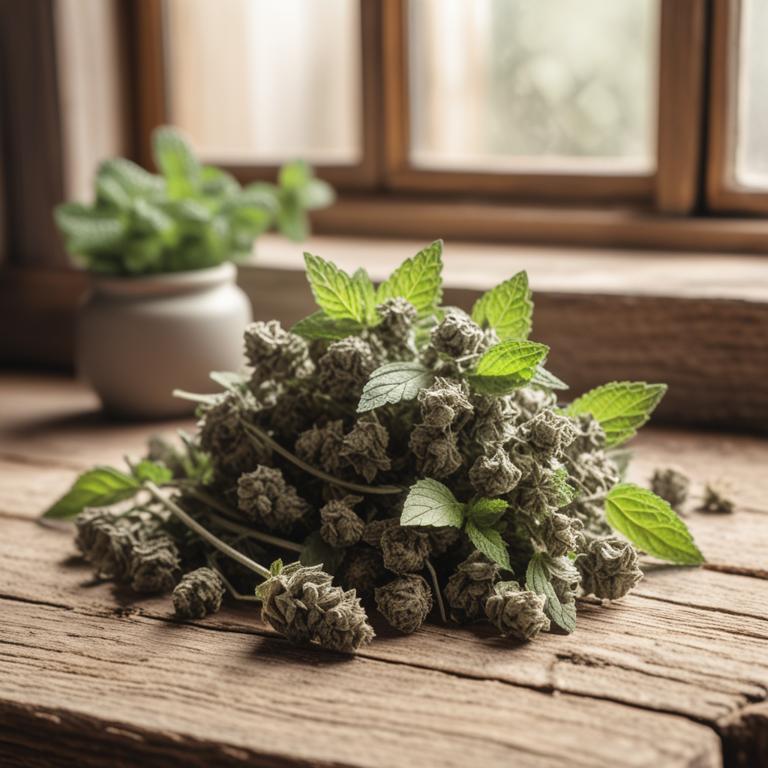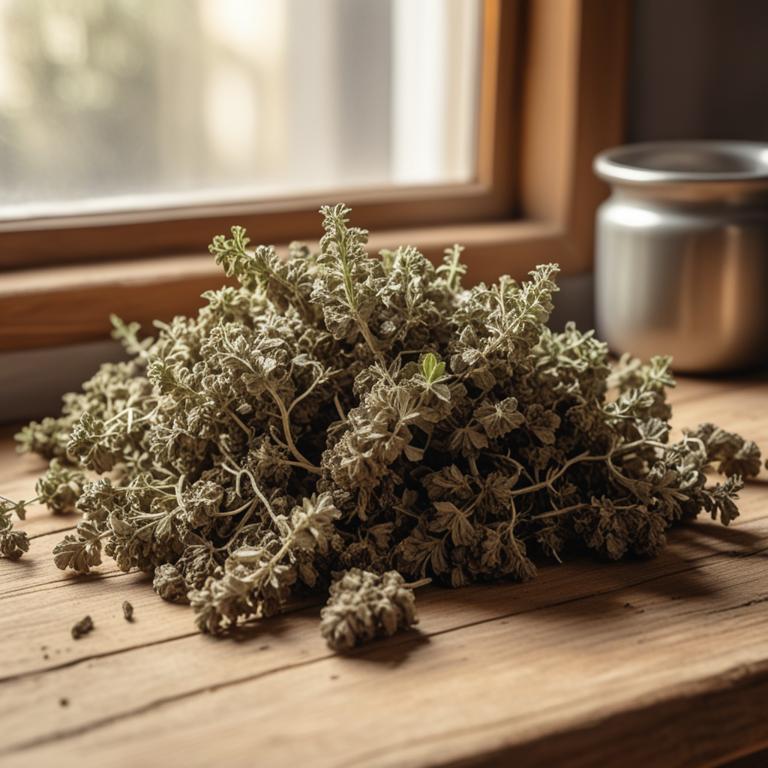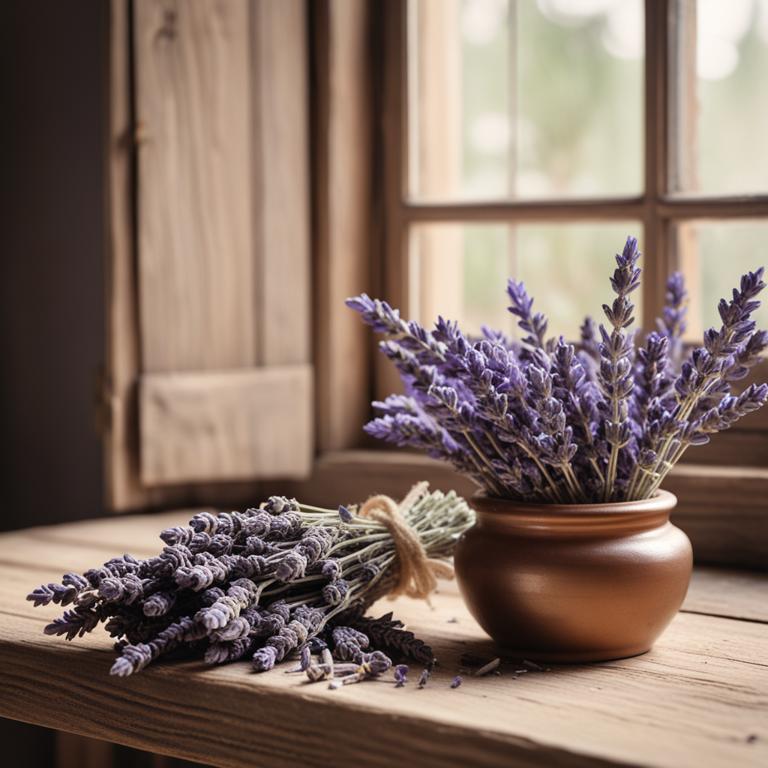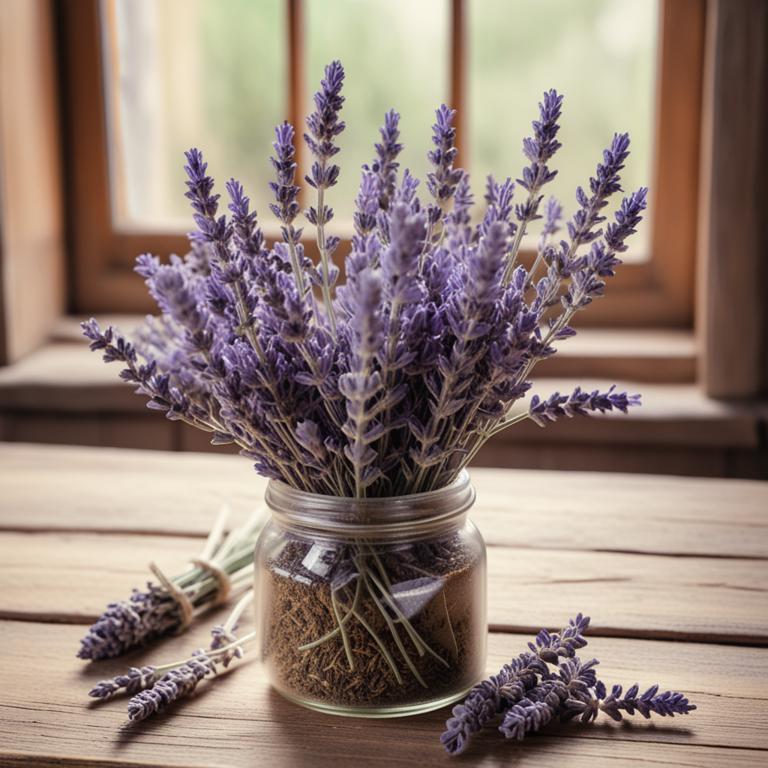Updated: Dec 1, 2024
Breaking Down Depression: Causes, Symptoms, and Herbal Remedies
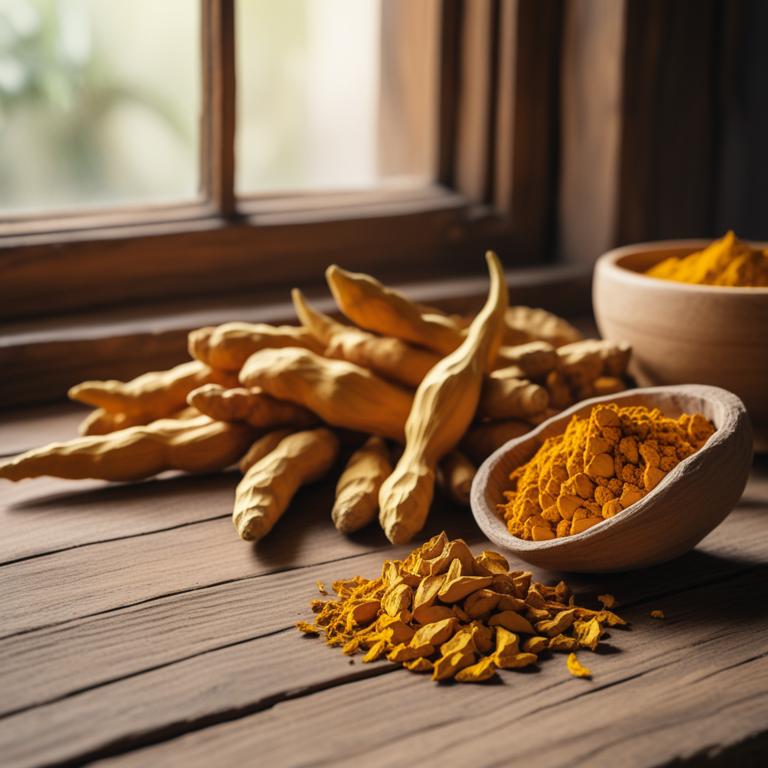
Depression is a serious condition that affects millions of people worldwide.
It's a feeling of sadness and hopelessness that can make everyday life difficult. When you're depressed, simple tasks can feel overwhelming, and you may lose interest in activities you once enjoyed. Depression can also affect your relationships, work, and overall well-being. Depression can be caused by a combination of factors, including genetics, life events, and brain chemistry. Traumatic experiences, loss of a loved one, or significant changes in life can trigger depression. Stress, anxiety, and other mental health conditions can also contribute to it.
Fortunately, there are herbal remedies that can help alleviate depression symptoms. Herbs like St. John's Wort, passionflower, and lavender have been used for centuries to calm the mind and body. These herbs contain natural compounds that can help regulate mood and reduce anxiety. Herbal preparations for depression can be consumed as teas, capsules, or tinctures. Drinking a warm tea made from St. John's Wort and passionflower can be soothing and calming. You can also add lavender oil to your bathwater for relaxation. Some herbal supplements, like omega-3 rich flaxseed oil, can be taken orally to support brain health.
These natural remedies may not replace medical treatment, but they can be a helpful addition to your depression management plan.
Table of Contents
- What factors contribute to the development of depression?
- What are the benefits of using herbal supplements to alleviate depression?
- What are the primary herbs in traditional medicine for depression?
- What are the most widely accepted herbal preparations for the management of depression?
- Are there any herbs you should steer clear of if you have depression?
- FAQ
What factors contribute to the development of depression?
The main causes of depression are complex and varied, but some common underlying factors include stress, genetics, trauma, abuse, and grief.
Stress is a significant contributor to depression, as it can cause feelings of overwhelm and anxiety that can be hard to manage. When we're under constant stress, our bodies release stress hormones like cortisol, which can disrupt our mood and emotions. This can lead to feelings of sadness, hopelessness, and fatigue, all of which are characteristic of depression. Genetics also play a role in depression, as research has shown that people with a family history of depression are more likely to experience it themselves. This doesn't mean that depression is inevitable if you have a family history, but it does suggest that genetic predisposition can make us more susceptible to the condition. Trauma is another major contributor to depression, as it can cause long-lasting emotional and psychological damage. When we experience a traumatic event, such as abuse, a natural disaster, or the loss of a loved one, it can leave us feeling scared, anxious, and vulnerable.
If we don't receive proper support and treatment, these feelings can become entrenched and lead to depression. Abuse, whether it's physical, emotional, or psychological, can also contribute to depression. When we're subjected to abuse, we may feel powerless, ashamed, and unworthy, all of which can erode our self-esteem and confidence. This can make it difficult to cope with the stresses of everyday life, leading to feelings of sadness, hopelessness, and despair. Grief is also a common cause of depression, particularly when we're dealing with the loss of a loved one. While it's normal to feel sad and overwhelmed after a loss, depression can occur when these feelings become excessive and interfere with our daily lives. When we're grieving, we may feel numb, disconnected, and unable to cope with the emotions that are swirling inside us.
If we don't receive support and treatment, these feelings can become entrenched and lead to depression.
What are the benefits of using herbal supplements to alleviate depression?
Using herbs for depression can be a helpful addition to traditional treatments.
One of the main benefits is that they can help reduce stress and anxiety, which are often major contributors to depression. These herbs have been found to have a calming effect on the mind and body, making it easier to relax and feel more centered.
They can also help regulate mood, which can be especially helpful for people who experience intense mood swings. Additionally, many of these herbs have antioxidant properties, which can help protect the body from damage caused by free radicals and promote overall well-being. Some herbs may also have a natural uplifting effect, helping to improve mood and reduce feelings of sadness.
By incorporating these herbs into your daily routine, you may find that you feel more balanced and better equipped to manage your symptoms.
What are the primary herbs in traditional medicine for depression?
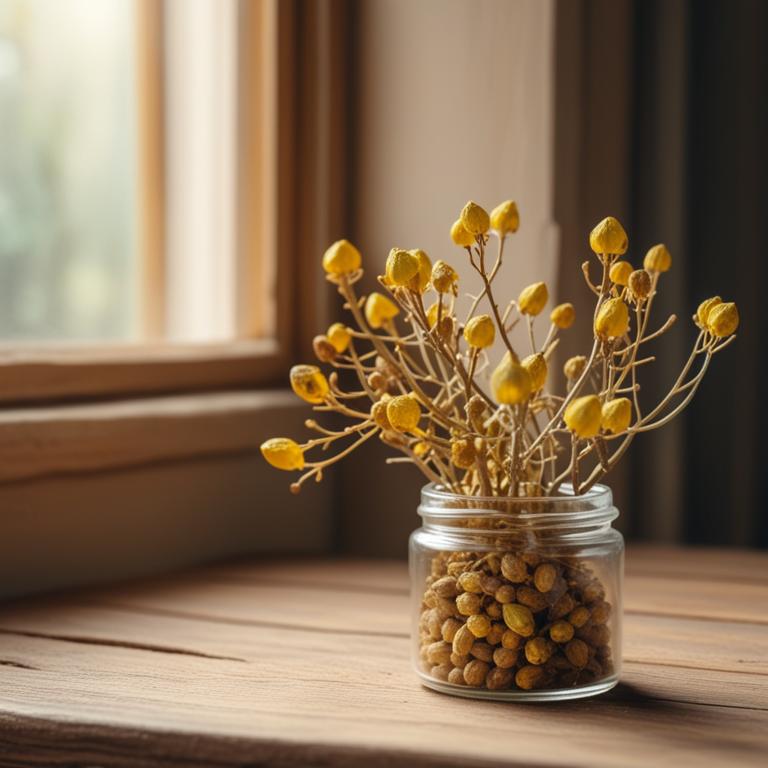
Herbs have been used for centuries to help with depression, and they can be a great addition to traditional treatment.
One herb that's often used is Hypericum perforatum, also known as St. John's Wort. It contains a chemical called hypericin that helps regulate mood and reduce stress. This can be especially helpful for people who experience anxiety or insomnia along with depression. Another herb that can be beneficial is Valeriana officinalis, or valerian root. It has a calming effect on the body and can help people fall asleep faster. This is important because lack of sleep can make depression worse. Valerian root also has a relaxing effect on the mind, which can help reduce stress and anxiety. Passiflora incarnata, or passionflower, is another herb that can be used to help with depression.
It has a calming effect on the nervous system and can help reduce anxiety and insomnia. It also has a mild sedative effect, which can help people fall asleep faster and sleep more soundly. Ginkgo biloba is an herb that's often used to improve memory and cognitive function, but it can also be used to help with depression. It contains chemicals that can help regulate mood and reduce stress. This can be especially helpful for people who experience anxiety or memory problems along with depression. Avena sativa, or oat straw, is another herb that can be used to help with depression. It contains a chemical called avenanthramides that can help reduce stress and anxiety. It also has a calming effect on the body and can help people fall asleep faster. This can be especially helpful for people who experience insomnia or restlessness along with depression.
It's worth noting that herbs can interact with traditional medications, so it's always best to talk to a healthcare professional before using them.
What are the most widely accepted herbal preparations for the management of depression?
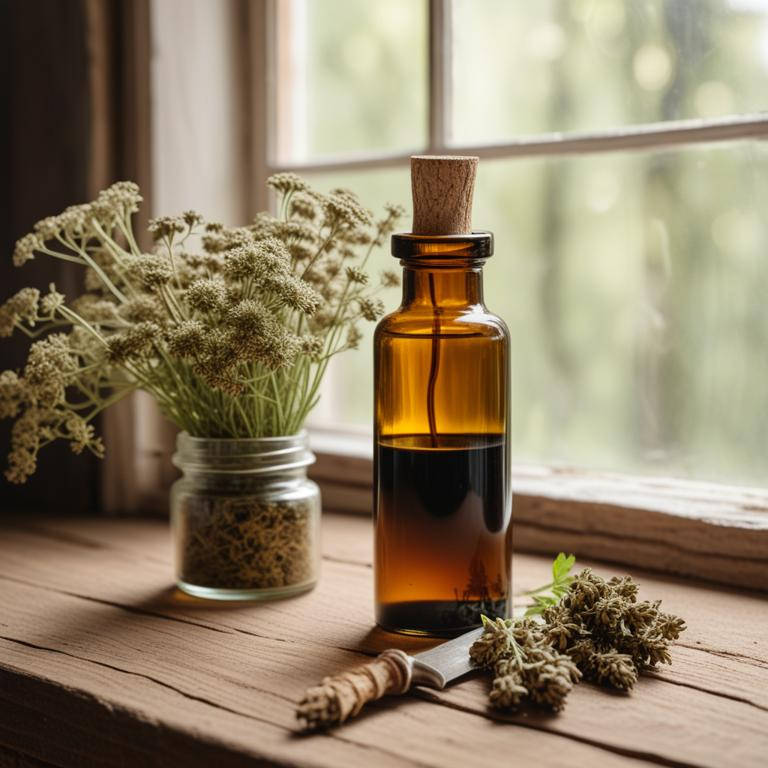
Herbal preparations can be a helpful addition to managing depression.
One way to use herbs is through a decoction, which involves boiling herbs in water to release their active compounds. This method is good for roots and bark, which can be difficult to dissolve in water. A decoction can help release the herbs' mood-boosting properties, like ashwagandha, which can reduce stress and anxiety. Another way to take herbs is as a tincture, which is a concentrated liquid extract of the plant. Tinctures are made by soaking herbs in a solvent, like ethanol or glycerin, and can be taken in small doses. This method is good for herbs that are hard to digest, like St. John's Wort, which can help alleviate depression symptoms.
Herbal capsules are another option, where dried herbs are filled into a gelatin or vegetarian capsule. Capsules are convenient and can be easily swallowed, making them a good choice for people who have trouble taking herbs in other forms. For example, the herb Saffron can be taken in capsule form to help improve mood and reduce symptoms of depression. Infusions are another way to take herbs, where the leaves, flowers, or stems are steeped in hot water to release their active compounds. This method is good for delicate herbs like chamomile, which can help promote relaxation and reduce anxiety. Lastly, suppositories are used for herbs that need to be absorbed directly into the body, like the herb Bacopa Monnieri, which can help improve memory and mood. These are inserted into the rectum and can be a good option for people who have trouble taking herbs orally.
Herbal preparations can be tailored to individual needs and preferences, and can be used in combination with other therapies to manage depression symptoms.
Additional Resources:
Are there any herbs you should steer clear of if you have depression?
If you have depression, it's best to steer clear of Catha edulis, also known as khat.
This herb can worsen anxiety and irritability, which can be particularly problematic for people struggling with depression. It can also lead to feelings of restlessness and jitteriness. Bacopa monnieri may seem like a harmless herb, but it can actually interfere with certain medications used to treat depression. This can make your condition worse, and even lead to more serious side effects. So, it's best to avoid it altogether.
Pausinystalia johimbe, or yohimbe, has been linked to increased stress and anxiety, which can be a nightmare for people with depression. This herb can also cause headaches and other unpleasant symptoms, making it a bad choice for those with depression. Ephedra sinica, also known as ma huang, may be used to boost energy, but for people with depression, it can be a recipe for disaster. It can worsen anxiety and even trigger suicidal thoughts in some individuals. Cinchona officinalis, or Peruvian bark, contains a compound that can increase serotonin levels in the brain. While this might sound like a good thing, it can actually interact with certain medications used to treat depression in a way that's not safe.
So, it's best to avoid it if you're already taking medication for your depression.
FAQ
Are there any specific herbs that can prevent depression?
Some herbs like St. John's Wort and Saffron have been studied for their potential to help with depression.
St. John's Wort contains compounds that may help improve mood, while Saffron contains a chemical that could have a positive effect on neurotransmitters in the brain.
These herbs may be worth looking into for their possible benefits.
Is it safe to use herbal remedies for depression during pregnancy?
Using herbal remedies for depression during pregnancy is a concern.
Some herbs can pass into the baby's blood and cause problems. For example, St. John's Wort can increase the risk of bleeding. It's also not clear how some herbs affect the developing baby.
It's best to avoid them until more is known.
Are there any herbs that can reduce the frequency of depression?
Some herbs may help reduce the frequency of depression.
For example, St. John's Wort has been studied for its potential to ease symptoms of depression. It's believed to affect neurotransmitters in the brain, which can help improve mood.
Other herbs, like Saffron and Ashwagandha, have also shown promise in reducing symptoms of depression.
Can i combine different herbal remedies for depression?
Yes, you can combine different herbal remedies for depression.
Some people find it helpful to mix herbs like St. John's Wort, SAMe, and passionflower to create a natural blend. However, it's essential to be cautious and start with small amounts to see how your body reacts.
This can help you find a combination that works for you.
Related Articles
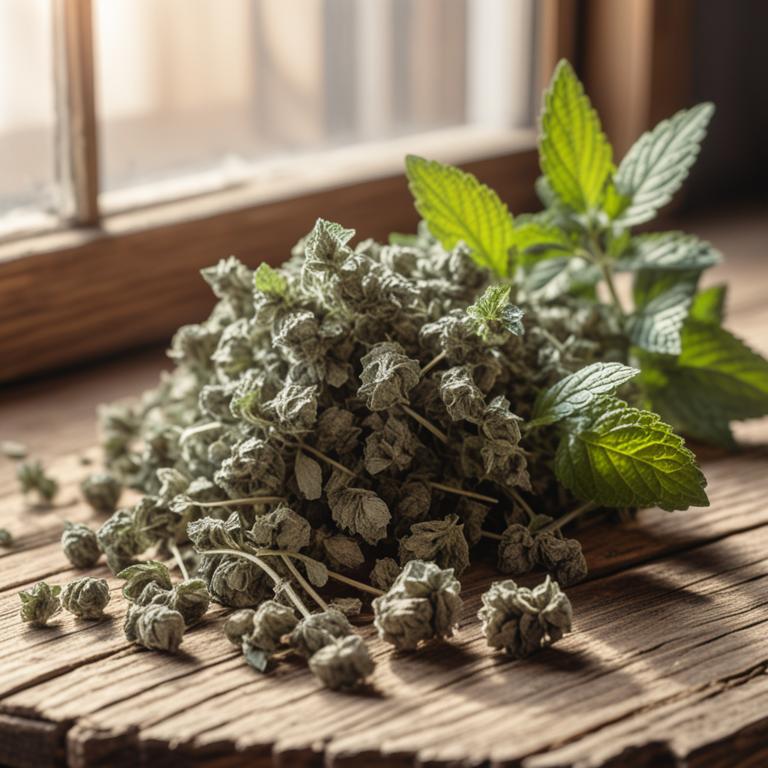
Understanding Headaches: Causes, Herbal Remedies, and Natural Preparations
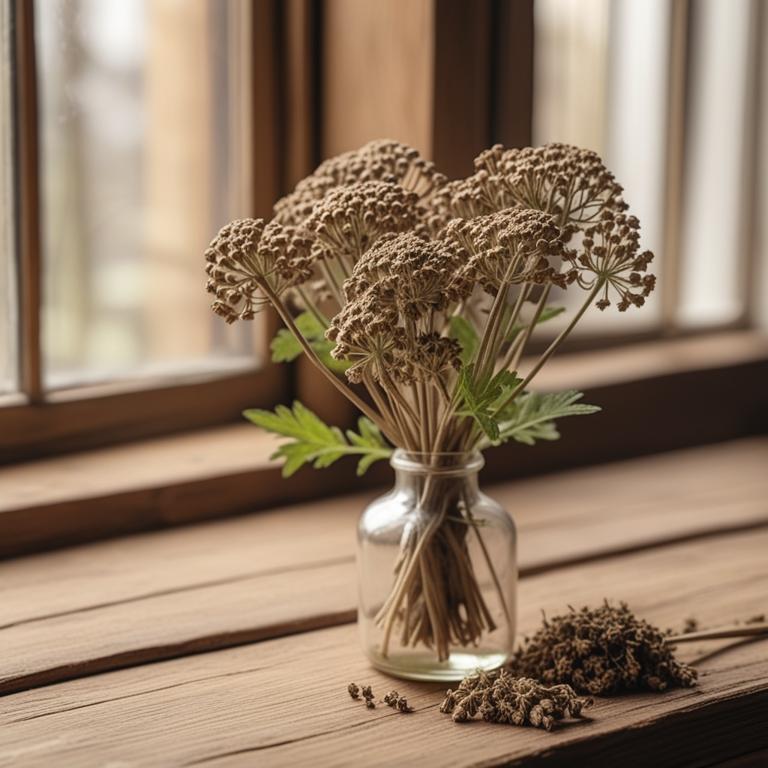
Causes and Cures for Jet Lag Using Herbal Preparations
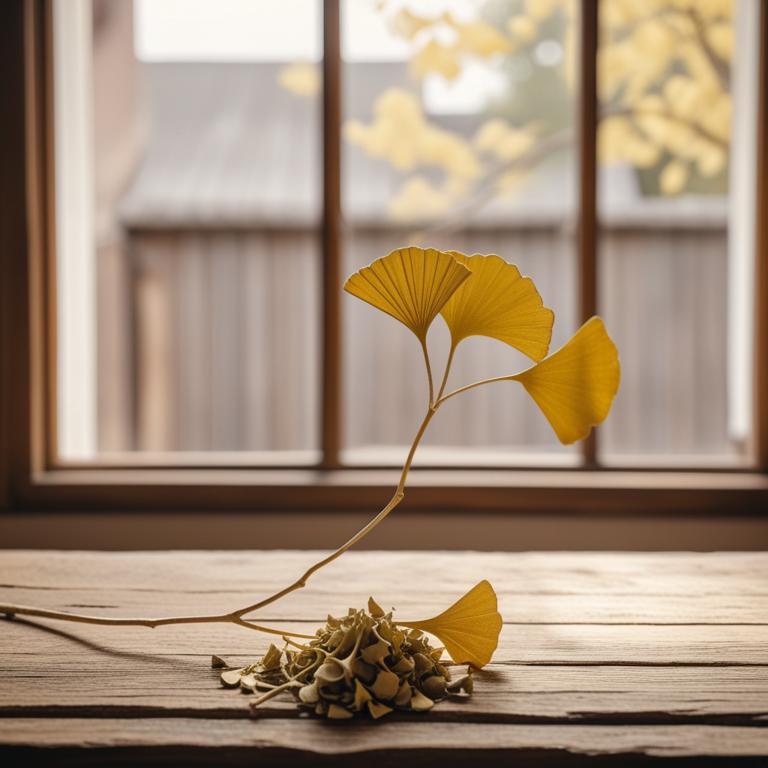
Eye Floaters - Causes, Medicinal Herbs and Natural Preparations for Relief
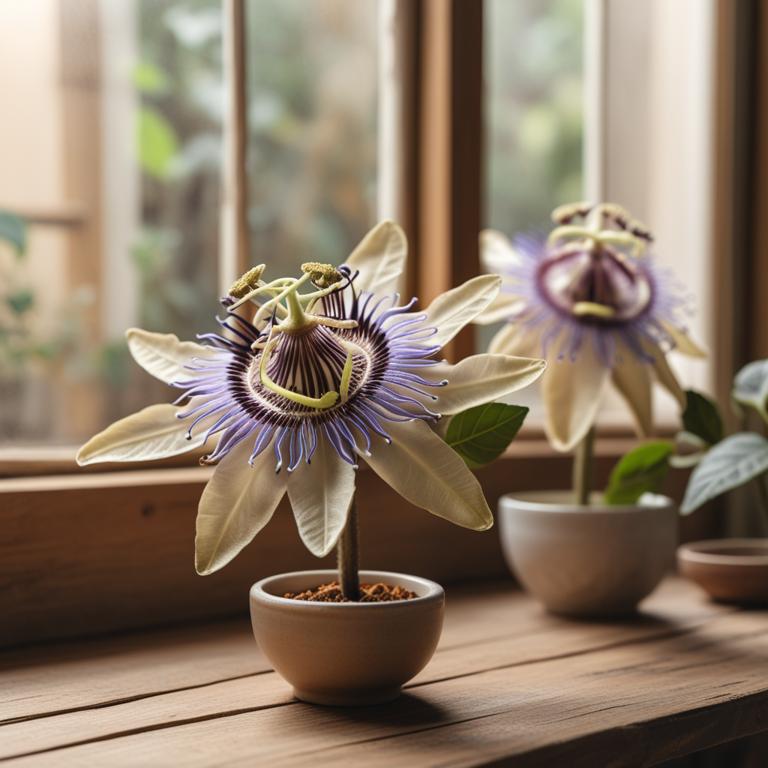
Nerve Pain and Herbal Preparations: Understanding Causes and Natural Relief
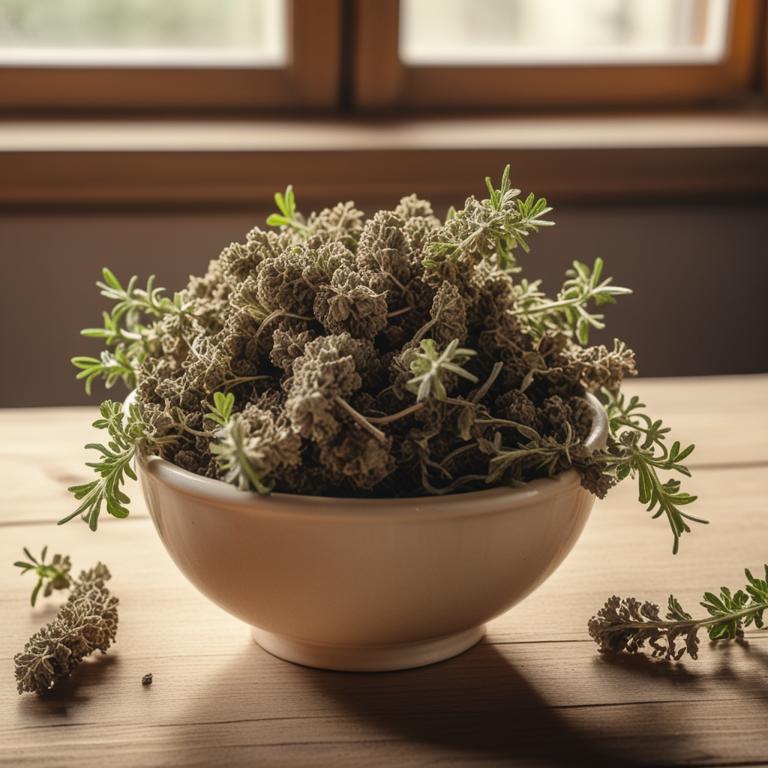
Speech Difficulty: Harnessing the Power of Medicinal Herbs and Herbal Preparations
